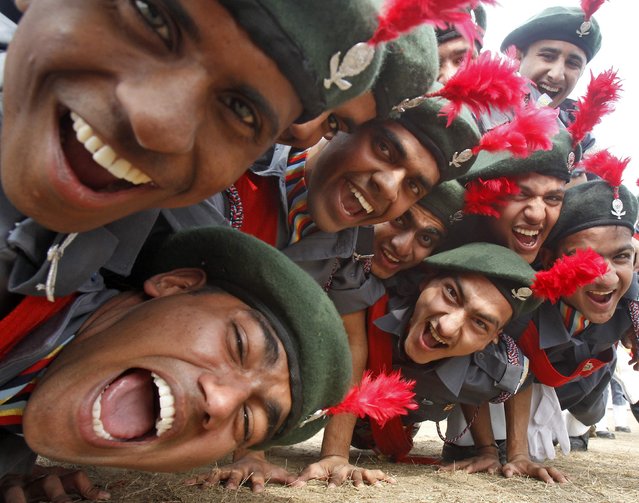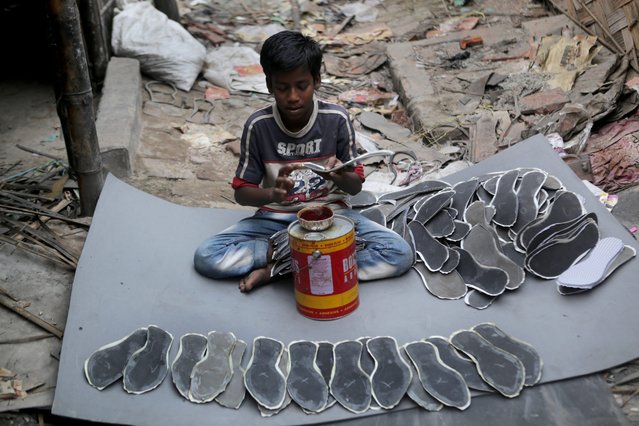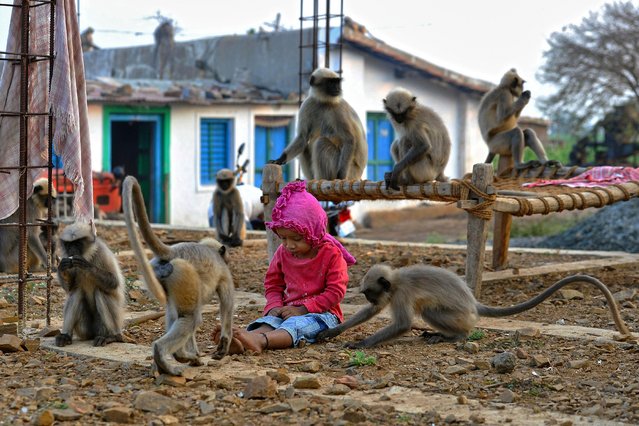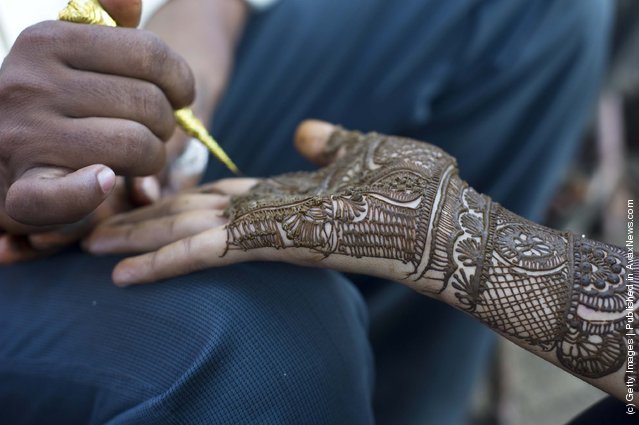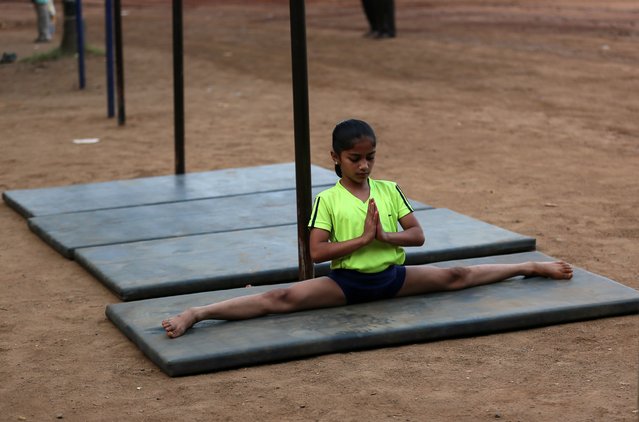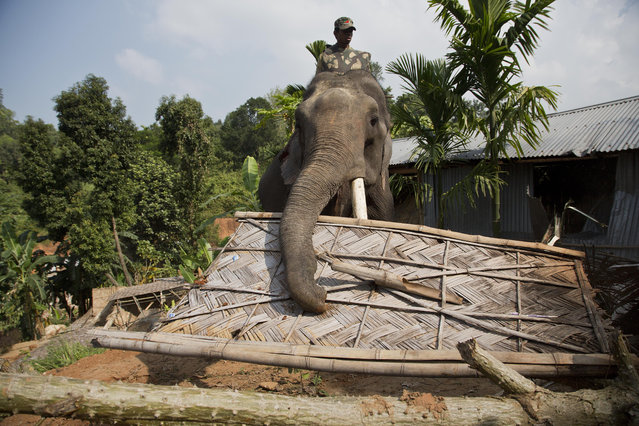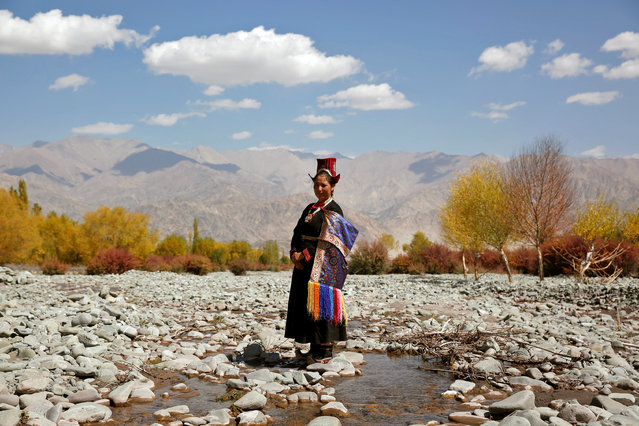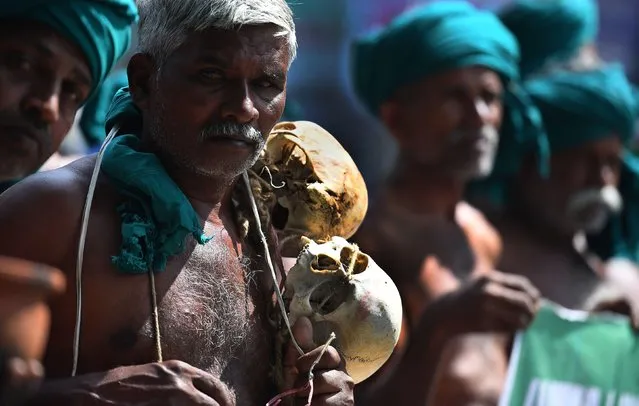
An Indian farmer from Tamil Nadu state wearing a necklace of human skulls representing suicides by agricultural workers takes part in a protest with other farmers in New Delhi on March 15, 2017. Tamil Nadu state farmers protested to demand a profitable price for their agricultral products, and called for the formation of management committee for solving Cauvery river water disputes. More than 200 farmers have committed suicide in Tamil Nadu in recent months following crop failure due to poor rainfall and inadequate water for irrigation. (Photo by Prakash Singh/AFP Photo)
17 Mar 2017 00:02:00,post received
0 comments

